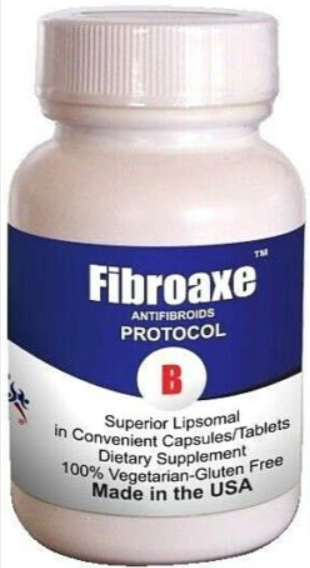Fibroids, also known as uterine fibroids or leiomyomas, are noncancerous growths that develop within the muscular walls of the uterus. While many women with fibroids experience no symptoms, others may face challenges such as heavy menstrual bleeding, pelvic pain, and reproductive issues. In recent years, there has been growing interest in Fibroid Supplements as a potential natural approach to managing symptoms and supporting overall uterine health.
Understanding Fibroids:
Before delving into fibroid supplements, it’s crucial to understand the nature of fibroids themselves. Fibroids can vary in size, number, and location within the uterus. Some women may have small, singular fibroids, while others may develop multiple fibroids of varying sizes. The exact cause of fibroids remains unclear, but factors such as hormonal imbalances, genetics, and lifestyle may contribute to their development.
Symptoms of Fibroids:
The symptoms associated with fibroids can range from mild to severe and may include:
1. Heavy Menstrual Bleeding: Fibroids can cause prolonged or heavy menstrual periods, leading to fatigue and anemia.
2. Pelvic Pain: Women with fibroids may experience pelvic discomfort or pressure, particularly during menstruation or sexual intercourse.
3. Frequent Urination: Large fibroids can press against the bladder, causing increased urgency and frequency of urination.
4. Reproductive Issues: Fibroids may interfere with fertility or increase the risk of complications during pregnancy and childbirth.
Conventional Treatment Options:
Traditional treatment options for fibroids often include medications to manage symptoms, hormonal therapies to regulate menstrual cycles, and surgical procedures such as myomectomy or hysterectomy to remove fibroids or the uterus itself. While these interventions can be effective, they may come with risks and side effects, prompting many women to explore alternative approaches, including fibroid supplements.
Exploring Fibroid Supplements:
Fibroid supplements typically contain a blend of vitamins, minerals, and herbal extracts that are believed to support uterine health and alleviate fibroid-related symptoms. While research on the efficacy of fibroid supplements is limited, some ingredients commonly found in these supplements may offer potential benefits:
1. Vitamin D: Adequate levels of vitamin D may help regulate estrogen metabolism and reduce the risk of fibroid development.
2. Vitamin C: This antioxidant vitamin may support collagen production and strengthen uterine tissues.
3. Magnesium: Magnesium is thought to help relax uterine muscles and alleviate menstrual cramps associated with fibroids.
4. Green Tea Extract: Rich in polyphenols and antioxidants, green tea extract may have anti-inflammatory and anti-proliferative effects on fibroid cells.
5. Turmeric: Curcumin, the active compound in turmeric, possesses anti-inflammatory properties that may help reduce fibroid-related pain and inflammation.
6. Chasteberry: Also known as Vitex agnus-castus, chasteberry is believed to help balance hormone levels and regulate menstrual cycles in women with fibroids.
Considerations Before Using Fibroid Supplements:
Before incorporating fibroid supplements into your wellness routine, it’s essential to consider the following factors:
1. Consultation with Healthcare Provider: Always consult with your healthcare provider before starting any new supplement regimen, especially if you have underlying health conditions or are taking medications.
2. Quality and Safety: Choose fibroid supplements from reputable manufacturers that adhere to good manufacturing practices (GMP) and undergo third-party testing for quality and purity.
3. Dosage and Formulation: Follow the recommended dosage instructions provided by the supplement manufacturer and pay attention to the formulation’s ingredients to ensure compatibility with your individual health needs.
4. Potential Interactions: Be aware of potential interactions between fibroid supplements and other medications or supplements you may be taking, including hormonal therapies or blood thinners.
Lifestyle Strategies for Fibroid Management:
In addition to considering fibroid supplements, adopting certain lifestyle strategies may help manage fibroid symptoms and support overall uterine health:
1. Maintain a Healthy Diet: Focus on consuming a balanced diet rich in fruits, vegetables, whole grains, and lean proteins while limiting processed foods and excess sugar.
2. Regular Exercise: Engage in regular physical activity, such as brisk walking, swimming, or yoga, to promote circulation, reduce stress, and support hormonal balance.
3. Stress Management: Incorporate stress-reduction techniques such as deep breathing, meditation, or mindfulness practices into your daily routine to alleviate stress and promote relaxation.
4. Maintain a Healthy Weight: Aim to achieve and maintain a healthy body weight, as obesity may be associated with an increased risk of fibroid development and severity of symptoms.
Conclusion:
While fibroids can pose challenges for many women, exploring natural approaches such as fibroid supplements may offer additional support for symptom management and uterine health. However, it’s essential to approach supplementation with caution, prioritize communication with healthcare providers, and complement supplement use with lifestyle modifications for optimal results. By taking a proactive approach to fibroid management, women can empower themselves to make informed decisions and enhance their overall well-being.
